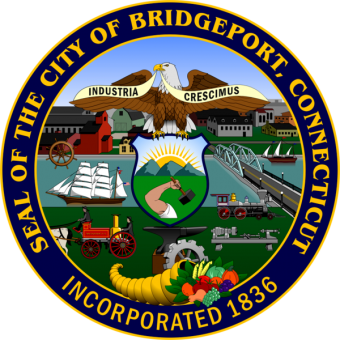- Education Topics
- Achievement Gap
- Alternative Education
- American Education Awards
- Assessment & Evaluation
- Education during COVID-19
- Education Economics
- Education Environment
- Education in the United States during COVID-19
- Education Issues
- Education Policy
- Education Psychology
- Education Scandals and Controversies
- Education Reform
- Education Theory
- Education Worldwide
- Educational Leadership
- Educational Philosophy
- Educational Research
- Educational Technology
- Federal Education Legislation
- Higher Education Worldwide
- Homeless Education
- Homeschooling in the United States
- Migrant Education
- Neglected/Deliquent Students
- Pedagogy
- Sociology of Education
- Special Needs
- National Directories
- After School Programs
- Alternative Schools
- The Arts
- At-Risk Students
- Camps
- Camp Services
- Colleges & Universities
- Counties
- Driving Schools
- Educational Businesses
- Financial Aid
- Higher Education
- International Programs
- Jewish Community Centers
- K-12 Schools
- Language Studies
- Libraries
- Organizations
- Preschools
- Professional Development
- Prom Services
- School Assemblies
- School Districts
- School Field Trips
- School Health
- School Supplies
- School Travel
- School Vendors
- Schools Worldwide
- Special Education
- Special Needs
- Study Abroad
- Teaching Abroad
- Volunteer Programs
- Youth Sports
- For Schools
- Academic Standards
- Assembly Programs
- Blue Ribbon Schools Program
- Educational Accreditation
- Educational Television Channels
- Education in the United States
- History of Education in the United States
- Reading Education in the U.S.
- School Grades
- School Meal Programs
- School Types
- School Uniforms
- Special Education in the United States
- Systems of Formal Education
- U.S. Education Legislation
- For Teachers
- Academic Dishonesty
- Childcare State Licensing Requirements
- Classroom Management
- Education Subjects
- Educational Practices
- Interdisciplinary Teaching
- Job and Interview Tips
- Lesson Plans | Grades
- Professional Development
- State Curriculum Standards
- Substitute Teaching
- Teacher Salary
- Teacher Training Programs
- Teaching Methods
- Training and Certification
- For Students
- Academic Competitions
- Admissions Testing
- At-Risk Students
- Career Planning
- College Admissions
- Drivers License
- Educational Programs
- Educational Television
- High School Dropouts
- Higher Education
- School Health
- Senior Proms
- Sex Education
- Standardized Testing
- Student Financial Aid
- Student Television Stations
- Summer Learning Loss
Bridgeport Public Schools

Basic Information
Address: 45 Lyon Terrace, Room 203
Bridgeport, CT 06604
Phone Number: 203-275-1001
Fax Number: 203-337-0150
Superintendent: Aresta L. Johnson, Ed.D., Interim Superintendent
Additional Information
Mission Statement:
The mission of Bridgeport Public Schools is to inspire our diverse community to work together to serve our students. We support the development of excellence utilizing our unique resources to challenge and cultivate well-balanced individuals who seek knowledge, will be career and college ready and will make significant contributions to society throughout their lives.
Belief Statements:
Belief Statements
We Believe…
• that a genuine professional learning community embraces the value of collaborative efforts that cultivate the social and emotional well-being of all of our students.
• that a rigorous, relevant, well-designed curriculum, which includes authentic educational experiences will afford our students the opportunities to think critically, integrate their ideas and be successful.
• that research based interventions and enrichment will cultivate the intellectual and social - emotional well-being of all of our students and will result in their success.
• that collaboration, open communication, and no fault problem solving among district leadership, schools, parents, and community partners will result in success for our students.
• that the Board of Education united in the pursuit of success for every child is a powerful force that will support the success of all of our students.
Vision Statement: Our Vision is to be a model urban school district that values and celebrates diversity and is renowned for its academic excellence and its support of the emotional well-being of the school community.
Notes/School Information:
Bridgeport Public Schools
The Five Theories of Action
- If we cultivate a *Professional Learning Community led by exemplary leaders who acquire and apply knowledge of data process/analysis and an understanding of *emotional intelligence, then all stakeholders will be able to make decisions that effectively inform instructional practices, and student achievement will increase.
- If we implement a rigorous cohesive curriculum, which is authored by teachers and implemented with fidelity using scientifically based instructional strategies, then teaching and learning will improve and student achievement will increase.
- If we continuously analyze our students' academic and behavioral needs and respond with a systematic protocol of intervention and enrichment strategies and utilize pertinent resources, then all students' achievement will increase.
- If we systematically disseminate vital information to families and the community; such as district policies, structures, and training, and strive to cultivate strong, equitable partnerships that empower all stakeholders, then we will generate enthusiasm for learning and student achievement will increase.
- If all members of the Board of Education support the efforts of the superintendent, staff, and community to achieve excellence in each of our schools, and work as a coalesced body with the superintendent to secure resources that will provide our students opportunities to achieve academic excellence and emotional intelligence, then Bridgeport Public Schools will become a model urban district.
*Professional Learning Communities This model is "characterized by a shared mission, vision, and values: collective inquiry; collaborative teams; an orientation toward action and willingness to experiment; commitment to continuous improvement; and a focus on results." (DuFour, Eaker).
*emotional intelligence using RULER approach-the ability to Recognize, Understand, Label, Express, and Regulate one's emotions. (Brackett)
Tags: Education, Bridgeport Public Schools, Bridgeport, BPS, BOE, Board of Education, BBOE



